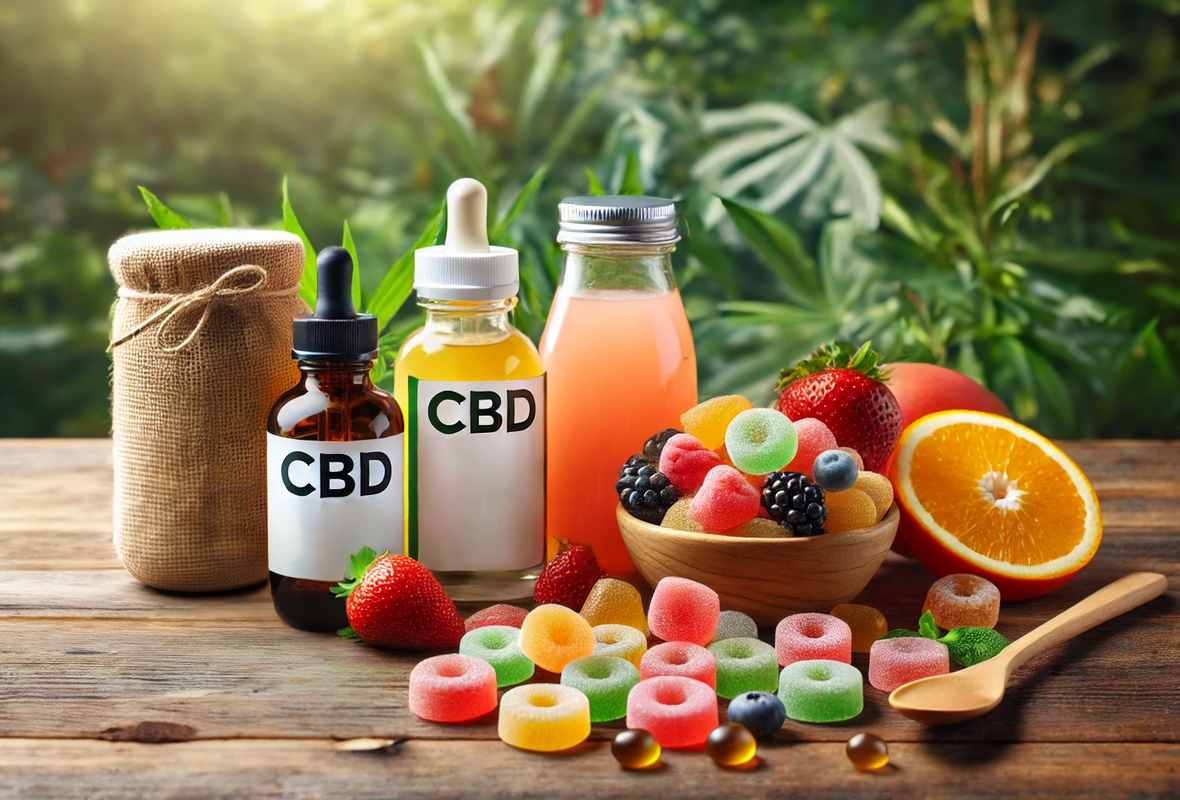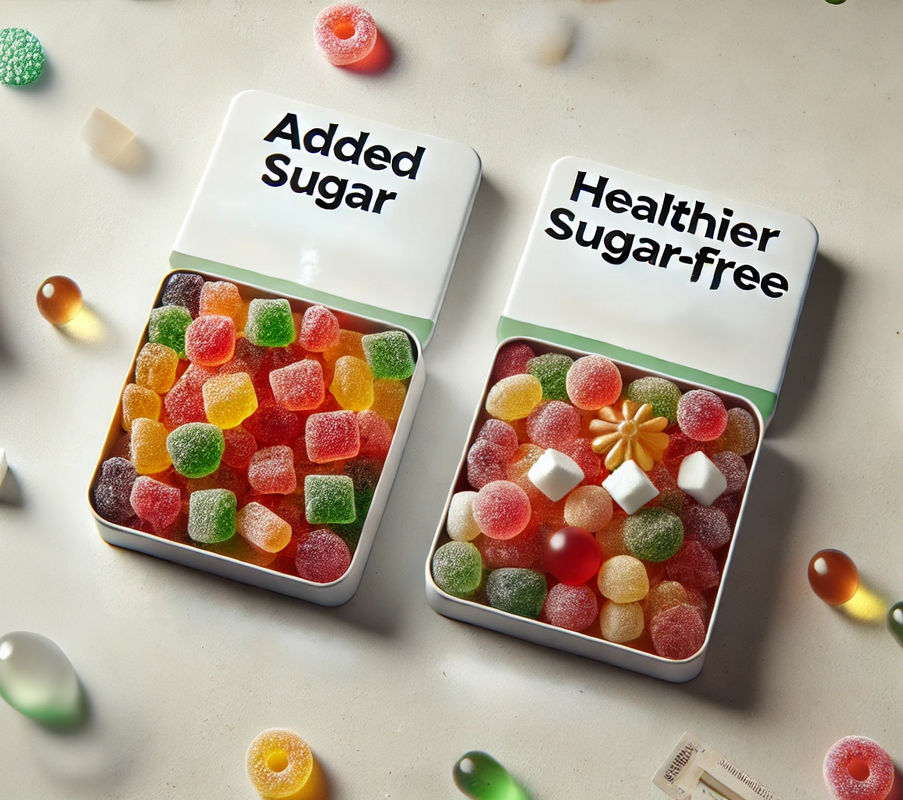
Advertising (Less Healthy Food Definitions and Exemptions) Regulations 2024.
These regulations, which are part of the government’s strategy to combat obesity and improve public health, will have an impact on CBD products, particularly CBD gummies and CBD drinks. The legislation uses a nutrient profiling scoring system to determine which foods and drinks are classified as less healthy, with higher-scoring products facing restrictions on advertising, particularly to children.
While this may sound daunting, these new rules offer an opportunity for the CBD industry to adapt, innovate, and continue to thrive in a more health-conscious marketplace. For CBD manufacturers, wholesalers, and retailers, the introduction of this statute can be seen as a positive step forward—offering clearer guidelines on advertising and promoting healthier products. Here’s what you need to know and a suggested to-do list to ensure compliance and continue your business success.

What Does the Statute Mean for CBD Gummies and Drinks?
The new advertising rules focus on the nutritional profile of products. Specifically, the nutrient profiling system assigns scores based on levels of fat, sugars, salt, and fiber. A product is classified as "less healthy" if it scores 4 or more for non-drink products or 1 or more for drinks.
CBD Gummies: Many CBD gummies contain added sugars, which can push them into the "less healthy" category, depending on the sugar content. However, if stevia or other low-calorie sweeteners are used, these do not count as sugars, which could help reduce the product’s score.
CBD Drinks: These are more likely to be affected by sugar content, as the scoring system for drinks is heavily weighted towards sugar. However, CBD drinks that use non-nutritive sweeteners like stevia may avoid these restrictions.
For CBD businesses that manufacture, wholesale, or retail gummies and drinks, the primary concern is whether your product falls into the "less healthy" category based on its nutrient profile. This could affect how you market your products, especially in terms of advertising in media targeted at children.
Why the Statute Is Good for the CBD Industry
While these regulations impose restrictions, they also present an opportunity to innovate. With more health-conscious consumers and stricter advertising rules, CBD businesses have a chance to focus on producing healthier, more nutritionally balanced products. By embracing healthier formulations and transparent advertising, the CBD industry can build consumer trust and brand loyalty.
Moreover, businesses that adapt early will have an advantage in the competitive market, positioning themselves as responsible and health-focused brands. The regulations also offer the opportunity to differentiate products by using natural, low-calorie sweeteners, enhancing the appeal of CBD gummies and drinks to the growing health-conscious consumer base.
Suggested To-Do List for CBD Members
To ensure compliance with the new statute and continue to thrive in the evolving market, CBD businesses should take the following steps:
1. Assess Product Nutritional Profiles
Action: Review the nutritional content of your CBD gummies and drinks. Focus on the levels of sugars, fat, saturated fat, salt, and fiber. If your products contain high levels of sugar or fat, assess whether you can reduce these levels without compromising on quality.
Outcome: Determine whether your products fall into the "less healthy" category based on the nutrient profiling system.
2. Consider Reformulating Products
Action: If your products are classified as less healthy, consider reformulating them. Use healthier sweeteners like stevia or erythritol, or reduce added sugars to lower your score. Consider adding fiber to improve the product’s nutritional value.
Outcome: Reformulated products may have a better nutrient profile, helping you avoid advertising restrictions.
3. Review Marketing and Advertising Channels
Action: Identify the platforms where your CBD products are advertised. Ensure that advertising is compliant with the new rules, particularly regarding restrictions on marketing to children. This may include reviewing TV, radio, and online advertising strategies.
Outcome: Avoid fines or penalties by ensuring that all advertising complies with the statute's guidelines, especially regarding age-appropriate marketing.
4. Stay Transparent and Educate Consumers
Action: Highlight the health benefits of your products, including any use of natural sweeteners or high-fiber ingredients. Use your marketing to educate consumers about the nutritional profile of your products and how they align with health-conscious choices.
Outcome: Build brand trust and attract health-conscious consumers who prioritize wellness and transparency.
5. Monitor Regulatory Updates
Action: Keep an eye on any updates to the regulations, particularly regarding possible exemptions for specific product categories or changes to the scoring system.
Outcome: Stay ahead of any changes to avoid non-compliance and to adjust your product offerings as needed.
6. Engage with Industry Associations
Action: Work with industry groups like the Cannabis Trades Association (CTA) to stay informed about regulatory changes and collaborate on best practices for advertising and marketing.
Outcome: Benefit from industry expertise and collective advocacy efforts to influence regulations positively.
Example of How the Scoring System Works for CBD Gummies and Drinks
Let’s take a practical example to better understand how the new regulations apply to CBD products, particularly gummies and drinks.
Example 1: CBD Gummies
Let’s assume you manufacture a CBD gummy that contains the following nutritional content:

Total Score: 1 (Fat) + 1 (Saturated Fat) + 3 (Sugars) + 0 (Salt) = 5 points
Since the score is 5, which is above the threshold of 4 for non-drink products, these gummies would fall into the "less healthy" category. As a result, you would face restrictions on advertising, particularly on platforms targeted at children.
Example 2: CBD Drink
Now, let’s consider a CBD drink that contains the following nutritional content:

Total Score: 2 (Sugars) = 2 points
Since the score is 2, which is above the threshold of 1 for drinks, this product would also be classified as "less healthy" and face advertising restrictions.

The Advertising (Less Healthy Food Definitions and Exemptions) Regulations 2024 present an exciting opportunity for the CBD industry to align with public health goals while continuing to provide quality products. By reviewing your products’ nutritional profiles, exploring healthier formulations, and ensuring compliant advertising practices, your business can thrive in this evolving regulatory landscape. The future of CBD is not only about offering effective products but also about being a leader in health-conscious, transparent marketing.
Published - 5th December 2024







You must be logged in as a member to add comments.
Become a member
Already a member? Log in or create an account.